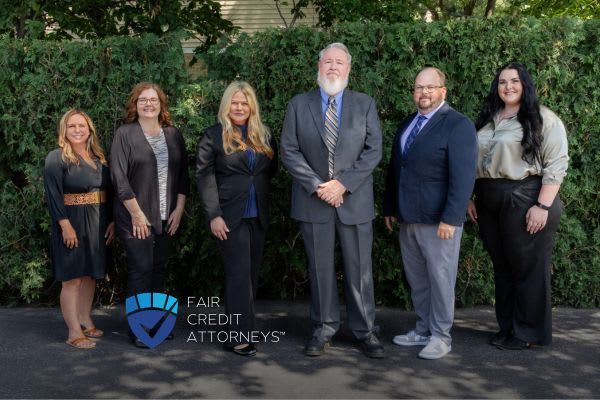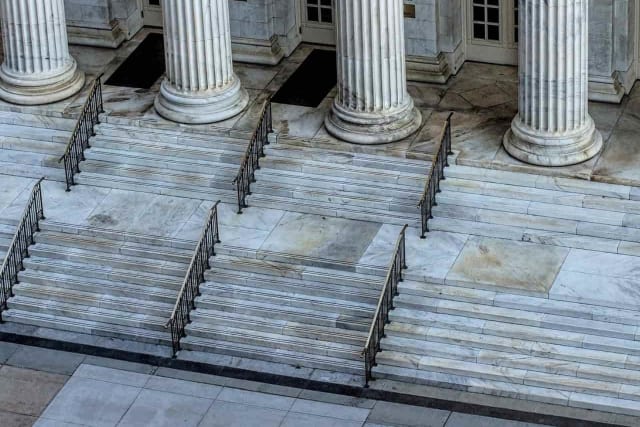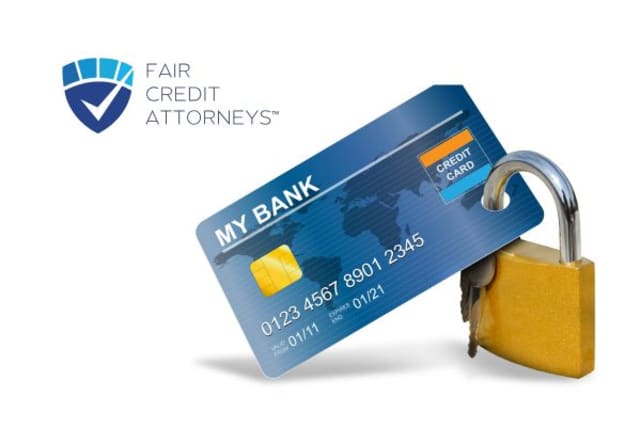If you have ever looked at your credit report and thought, “This is not right,” you are not alone. Credit report errors occur frequently and can significantly impact your financial life. Even a small mistake can lead to loan denials, higher interest rates, or problems getting a job or an apartment. The Fair Credit Reporting Act exists to ensure the credit reporting system is fair and accurate, protecting consumers when credit reporting agencies, credit bureaus, or data furnishers fail to comply with the law.
If you are dealing with credit reporting errors, identity theft, or ignored disputes, you do not have to handle it alone. Experienced fair credit attorneys can review your situation, explain your rights, and take action to protect your credit. Early intervention can prevent small mistakes from becoming long-term financial challenges.
Call Fair Credit Attorneys at (866) 381-6444 to schedule your consultation and protect your rights today.
What Is the Fair Credit Reporting Act (FCRA) and Who It Protects
The origin of the FCRA goes back to concerns about accuracy, fairness, and privacy in the growing credit reporting industry. Congress created the Fair Credit Reporting Act to regulate how consumer data is collected, shared, and maintained.

The law applies to:
- Credit reporting agencies
- Credit bureaus like Trans Union
- Data furnishers such as banks, lenders, and credit card companies
- Data brokers involved in data management and consumer data
The FCRA governs consumer reports used for:
- Consumer credit decisions
- Credit scoring and credit industry assessments
- Employment background checks (including FCRA background screening AO issues)
- Housing and insurance decisions
It also works alongside other consumer protection statutes, including the Fair and Accurate Credit Transactions Act, which focuses on identity theft prevention and data security.
At its core, the FCRA defines consumer rights and responsibilities, giving you the right to accurate reporting and fair treatment within the credit reporting system. Consumers also have the right to request consumer dispute verification forms and engage in a structured dispute resolution process to challenge mistakes.
Common Credit Report Violations That Lead to FCRA Lawsuits
Many Fair Credit Reporting Act violations stem from simple mistakes that are never corrected. Others come from deeper problems within the credit industry and credit reporting agencies.
Common credit report errors include:
- Accounts that do not belong to you due to identity theft
- Incorrect balances or late payments on a credit card
- Duplicate accounts or “credit washing” attempts
- Outdated negative information that should have been removed
- Errors tied to Credit One Bank or other lenders failing to update data
Other serious FCRA violations may involve:
- Failure to conduct a proper dispute investigation
- Ignoring a valid consumer dispute
- Inaccurate reporting after a dispute letter is submitted
- Problems caused by a data breach or poor data security practices
Consumers often do not realize that mistakes can snowball. For example, a small error in your employment history can affect credit scoring, which in turn impacts the ability to get a loan, credit card, or insurance. This is why understanding the dispute resolution process and knowing your rights under consumer protection laws is critical.
Learn More: Common types of credit report errors
How Credit Report Errors Can Impact Your Financial Future

Credit reporting errors do more than hurt your credit score; they can affect nearly every part of your financial life. These issues may seem minor at first, but they often have ripple effects:
- Loan or mortgage denials
- Higher interest rates on consumer credit
- Trouble answering questions like “do you need a job to get a credit card?” when inaccurate employment-related data appears
- Increased insurance premiums
- Difficulty passing background checks
- Negative impact on credit scoring and future credit opportunities
Economic damages can add up quickly. For instance, if inaccurate reporting leads to higher interest rates on multiple credit cards, consumers may pay thousands of dollars more over time. When mistakes remain uncorrected, the stress of monitoring consumer reports and trying to fix errors can take a significant emotional toll.
When Credit Reporting Problems Turn Into an FCRA Lawsuit
Not every mistake automatically leads to litigation. However, when credit bureaus or data furnishers fail to act, a legal claim may be necessary.
An issue may turn into an FCRA lawsuit when:
- You file a consumer dispute and receive no meaningful response
- A consumer dispute verification form is ignored or mishandled
- The dispute resolution process is delayed or incomplete
- Errors remain after repeated dispute investigations
In some cases, Fair Credit Reporting Act litigation may involve class actions, especially when multiple consumers are harmed by the same unlawful practices. Class certification allows affected class members to pursue accountability collectively, potentially recovering statutory damages and pushing for systemic reform. These actions may also intersect with workplace class action litigation when employment reporting is involved.
Learn More: Fix Credit Report Errors in 7 Steps
How Our Fair Credit Attorneys Help with FCRA Litigation

Working with experienced fair credit attorneys gives you an advocate who understands the credit reporting system, consumer credit, and consumer protection statutes. Our attorneys provide support similar to a credit repair attorney, but with legal authority to enforce your rights.
Our fair credit attorneys can:
- Review your credit report and other consumer reports for violations
- Identify errors tied to credit reporting agencies, data brokers, and data furnishers
- Handle communication with credit bureaus like Trans Union, Equifax, or Experian
- Draft and submit dispute letters and supporting documentation
- Escalate unresolved issues into a Fair Credit Reporting Act lawsuit
- Help you navigate remedies such as economic damages, correction of errors, or statutory recovery
By working with FCRA law firms, you can ensure that consumer rights and responsibilities are fully protected. Whether the issue involves Credit One Bank, credit repair organizations, or complex data management problems, fair credit attorneys provide the guidance and advocacy necessary to achieve results.
Compensation and Remedies Available Under the FCRA
The Fair Credit Reporting Act allows consumers to seek meaningful relief. Remedies include:
- Correction or deletion of inaccurate credit report errors
- Recovery of economic damages caused by mistakes
- Statutory damages for willful Fair Credit Reporting Act violations
- Coverage of attorney’s fees and legal costs
In class actions, class members may recover damages collectively and push for industry-wide improvements. These cases also help strengthen the credit reporting system for all consumers, enhancing data security and accuracy across the credit reporting industry.
Take Control of Your Credit with Trusted Legal Help

Credit reporting errors can feel overwhelming, but you do not have to deal with them alone. The Fair Credit Reporting Act exists to protect you from unfair practices, inaccurate reporting, and misuse of consumer data.
Whether you are facing identity theft, ignored disputes, or systemic reporting problems, fair credit attorneys can guide you through your options. From dispute resolution to full Fair Credit Reporting Act lawsuit representation, the right legal team can help restore your credit, enforce your rights, and protect your financial future.
If your credit report errors are holding you back, act today. Contact fair credit attorneys to discuss how we can help. Whether you need advice from a credit repair attorney or guidance through Fair Credit Reporting Act litigation, we are here to help every step of the way.
FAQs
Can I sue for FCRA violations?
Yes. If a credit bureau or data furnisher fails to follow FCRA rules, you may file an FCRA lawsuit. Fair credit attorneys can help you navigate disputes and represent you in litigation if needed.
How long does it take to resolve a credit report dispute?
Most disputes are investigated within 30 days under the FCRA, but complex cases may take longer. Working with fair credit attorneys can help ensure the process is handled quickly and correctly.
How do class actions work for FCRA violations?
Class actions allow multiple consumers affected by the same error to pursue compensation together. Class members can recover damages and push for corrections in the credit reporting system.



